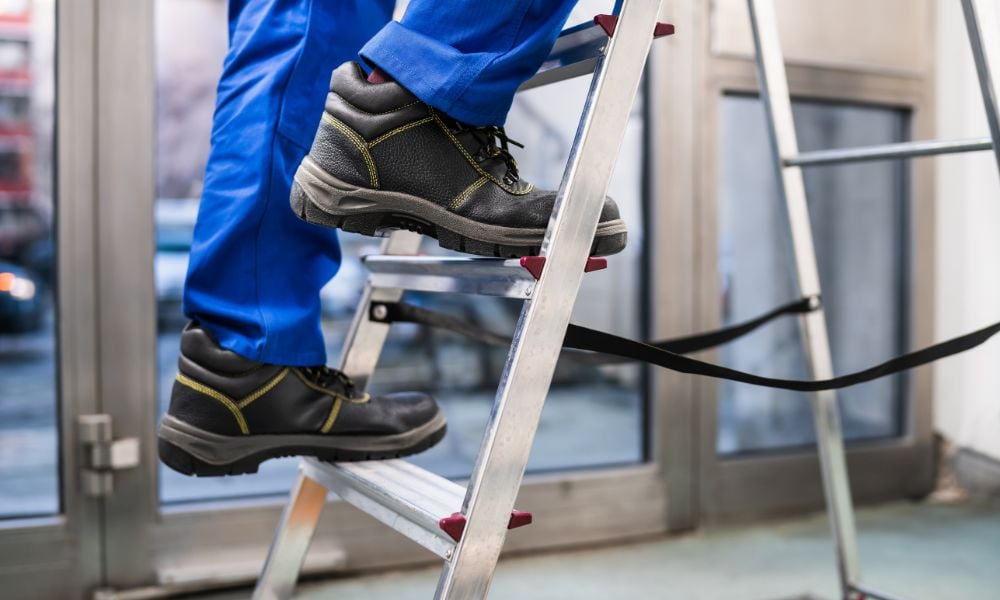'We're there because we want to be there'

This article was created in partnership with Medcor Canada.
In high-risk environments such as construction sites, energy plants or remote pipeline projects, the stakes for workplace health and safety are equally high. Delayed care can mean costly downtime – or worse, catastrophic outcomes. Melissa Manion, Director of Sales & Customer Success at Medcor Canada, spoke to COS on how integrating health screenings, preventive education and onsite clinical response aren’t just a nice-to-have nowadays, they’re essential.
“Health screenings and preventive education [are] part of our general health offering overall. So when we put an onsite clinic or some of our mobile treatment centres onto a site, we do that for everyone. Whether it's general health, health screenings or hand hygiene we have our [all-encompassing] wellness principles. This is something that we do, and it's just part of who we are.”
Building trust to stay healthy
Because at Medcor Canada, building a culture around health means more than offering resources – it’s about creating visibility, accessibility and trust. By being physically present and consistently engaging with workers, Manion’s team creates relationships that make early intervention possible.
“It's part of building trust and being able to give everyone the tools they need to stay healthy.”
One of the clearest examples of the value of onsite health screenings is in cardiac care. Because symptoms can be vague, or entirely absent, having accessible medical evaluations on location becomes a critical safety net.
“When people come to talk to us during blood pressure clinics… it’s really in that cardiac care piece. People aren't always symptomatic. They may think they just ate something funny the day before, or their blood pressure is just a little high.”
It’s only through routine check-ins and health screenings that providers can identify hidden risks and intervene before they escalate into serious medical events.
“We’ve built that trust where they can come talk to us and feel comfortable giving us the details we need to make sure that they get the help that they need.”
Care in 20 minutes or less
And in fast-paced, high-risk industries, response time can’t be an afterthought. That why Medcor Canada tailors its approach depending on site layout and project type with a unified goal: deliver care within 20 minutes or less.
“If it's a pipeline, maybe we have more than one vehicle strategically placed. If it's construction, we try to be right in the heart of where everything is happening, and then doing walk-arounds so people see that we're there.”
More than just providing care, Manion explained that her team integrates itself into the rhythm of the job site, through orientations, safety meetings and daily touchpoints.
“We're not just a third party that's on site because they have to be. We're there because we want to be there.”
One of the persistent challenges in workforce health programs is getting buy-in from employees. Here Manion emphasizes the power of scenario-based learning and face-to-face interactions.
‘We’re catching the people that just aren’t feeling great’
“One of the biggest engagement tactics is to simply be present at the safety meetings… speaking to employees at their level. They always want to have some scenario: ‘Let me ask you this.’ That’s where having the healthcare providers do that engagement and that training really helps… we probably have the experience to pull from and give them an answer.”
Too often, companies split workforce health into two silos: wellness programs vs. emergency response. But Manion warns this separation creates blind spots that compromise both safety and productivity.
“We’re catching the people that just aren’t feeling great. That means they’re less productive, which means they may not be paying as close attention… which makes them more susceptible to injuries.”
Proactive care, delivered alongside rapid response, does more than reduce risk. With Medcor Canada, it fosters a culture where health is managed holistically, not reactively.
“There are lots of things that help keep the reactive piece minimized,” added Manion. “And when they do get hurt, they also have that trust that we’re going to help them along the way.”
‘We’re there because we want to be there’
In these environments, trust isn’t a soft metric, it’s a performance factor. Workers who feel supported are more likely to engage early, recover faster and stay focused on the job. Essentially, in industries where danger is part of the daily equation, combining prevention with immediate care isn’t just efficient, it’s lifesaving.
As Manion puts it: “We’re there because we want to be there.” That mindset, backed by strategic onsite deployment and a deeply embedded health culture, is what separates effective workforce health programs from box-checking efforts.
And for leaders in construction, energy and field-based operations, the takeaway is clear: if you want a safer, more resilient workforce, integrate care across the entire health spectrum – before, during and after an incident occurs.





